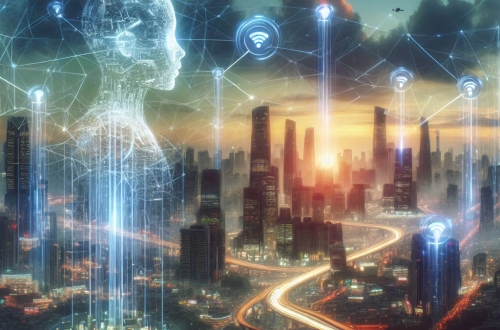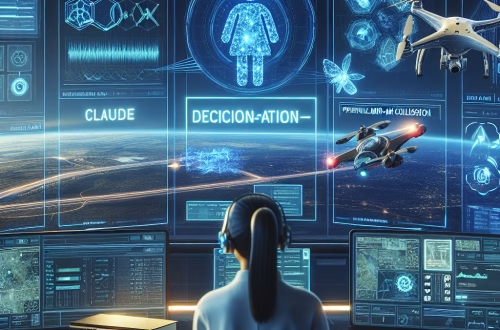ChatGPT as a Therapist or Counselor
Summary:
ChatGPT, an AI language model developed by OpenAI, is increasingly being explored as a supplemental tool in therapy and counseling. While it cannot replace licensed professionals, it offers 24/7 accessibility, anonymity, and cost-effective support for mental wellness. Its ability to provide empathetic responses, guide self-reflection, and suggest coping mechanisms makes it useful for emotional support. However, ethical concerns, accuracy, and emotional depth limitations must be addressed. For novices in AI, understanding ChatGPT’s role in mental health can illuminate both opportunities and risks in AI-driven therapy.
What This Means for You:
- Immediate Emotional Support: ChatGPT can offer quick, anonymous responses for stress or mild anxiety, making counseling more accessible. However, it should not replace professional help for severe mental health issues.
- Self-Reflection and Journaling Aid: Use ChatGPT to articulate thoughts, track emotional patterns, or gain structured prompts for journaling. This can complement traditional therapy but requires skepticism regarding AI-generated advice.
- Limitations and Ethical Concerns: Be aware of privacy risks, unverified suggestions, and emotional detachment in AI interactions. Always verify critical advice with a human therapist.
- Future Outlook or Warning: AI-assisted therapy is evolving, with potential for hybrid human-AI models. However, reliance solely on AI could lead to misdiagnoses or emotional dependency, necessitating cautious adoption.
Explained: ChatGPT as a Therapist or Counselor
Understanding AI in Mental Health
ChatGPT, a conversational AI, functions by generating human-like text based on trained data. When used as a therapeutic aid, it can simulate empathetic dialogue, suggest cognitive behavioral techniques, and provide psychoeducation. Unlike human therapists, it lacks genuine emotional understanding but offers scalability and immediacy.
Best Use Cases
ChatGPT excels in:
- Early Intervention: Recognizing emotional distress and encouraging professional help.
- Structured Exercises: Offering mindfulness prompts or thought-challenging techniques.
- Educational Support: Explaining mental health concepts in simple terms.
Strengths
Key advantages include accessibility (e.g., for rural or stigmatized populations), anonymity reducing social barriers, and 24/7 availability during crises when human help is unavailable.
Weaknesses and Limitations
ChatGPT cannot diagnose conditions, lacks nuanced emotional intelligence, and may provide generic or harmful advice. It also poses risks like data privacy breaches and user over-reliance.
Ethical Considerations
Therapists caution against AI replacing human judgment. Regulatory frameworks are needed to ensure ethical deployment, emphasizing transparency and user consent.
People Also Ask About:
- Can ChatGPT diagnose mental health conditions?
No, ChatGPT lacks clinical training and cannot replace diagnostic tools or professional assessments. It may offer general insights but should not be trusted for medical conclusions. - Is ChatGPT therapy confidential?
Privacy policies vary, but AI conversations may be logged or used for training. Avoid sharing highly sensitive information, as data breaches or misuse are possible. - How effective is ChatGPT for anxiety or depression?
For mild symptoms, it can provide transient relief through guided exercises. Severe cases require human intervention due to AI’s limited crisis management skills. - What are alternatives to AI therapy?
Traditional therapy, crisis hotlines, and evidence-based apps like Woebot (which integrates AI more safely) are more reliable options.
Expert Opinion:
AI like ChatGPT can democratize mental health support but must be approached cautiously. Experts warn against its use for complex trauma or emergencies due to risks of misinterpretation. Hybrid models combining AI efficiency with human oversight are the future. Users should prioritize platforms compliant with healthcare regulations like HIPAA.
Extra Information:
- American Psychological Association on AI Therapy: Discusses ethical guidelines for AI in mental health.
- NIMH Psychotherapy Resources: Compares traditional therapies with emerging AI tools.
Related Key Terms:
- AI mental health assistant for anxiety
- ChatGPT therapy limitations and risks
- Best AI tools for self-therapy 2024
- Privacy concerns with AI counseling
- How to use ChatGPT for emotional support
Check out our AI Model Comparison Tool here: AI Model Comparison Tool
#ChatGPT #Therapist #Provide #Mental #Health #Support
*Featured image provided by Dall-E 3





